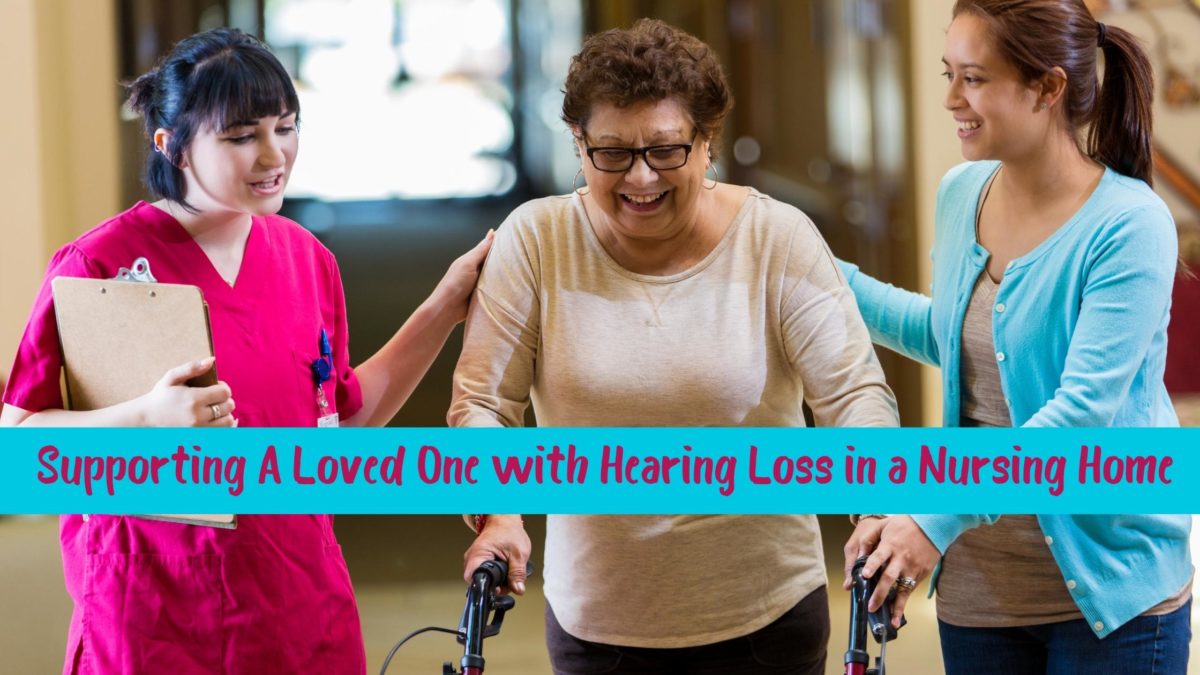There are many positives for your loved one within the setting of a nursing home or caregiving facility. Aside from having attentive care twenty-four hours a day, there are also often social-positive activities curated for their interests.
Maintaining social connections can help to dispel feelings of isolation and depression. Urge your loved one to participate in facility activities like movie nights, dinners together, or other group gatherings. But untreated hearing loss can stand in the way of your loved one and optimal medical care, plus it can be an obstacle in maintaining social connections.
Evidence that hearing loss factors into medical care
When hearing is challenged, communication with medical providers and caregivers can also suffer. Trust and dialogue are an important part of making a person feel heard and even in making them feel confident enough to share all of their symptoms with medical providers, as well as being able to complete proper follow-up care after a medical issue.
People with hearing loss might feel more helpless and disengaged versus people who have no trouble hearing. In a 2019 study published by the Journal of the American Geriatrics Society, researchers found that people who have “a lot of trouble hearing” have almost twice the incidence of high patient activation, meaning that they were more likely to be unengaged and feel less capable of managing their health and care.
Age-related hearing loss
Hearing loss that comes into play later in life is most often attributed to the natural aging process. One-third of people over the age of 65 have hearing loss, a number that shoots upward (to fifty percent) once we reach 85 years of age. Age-related hearing loss is a progressive condition that needs to be monitored with regular hearing checks.
While the condition is not reversible or curable, there are interventions available. Hearing aids or cochlear implants are proven and successful treatments that have brought vibrant hearing back into many people’s listening lives. Hearing aid wearers are highly likely to be satisfied with their investment and most would recommend hearing aids to a friend.
More tips to help your loved one with hearing aids
Change is uncomfortable. Sometimes, we stay in suboptimal conditions just because the change in habit or experience outweighs the benefits on the other side of change. The truth is that wearing a hearing aid is a practice of adaptation, which means that it gets easier to do with consistent wear. Our brains are involved, too. Sometimes we need to give our brains time to catch up to all the renewed sound information they’re receiving. As we adapt, it becomes more comfortable and pleasing to keep our hearing aids in. Once we get out of the habit of wearing hearing aids, it becomes more difficult to begin wearing them again.
- Make it as easy as possible for your loved ones to use their hearing aids. Get a special case and label it with their name, so that their hearing aids don’t get lost. Make a place for their hearing aids on your loved one’s bedside table, so that they’re always within reach. Speak to their caretakers and let them know that wearing their hearing aids is on your loved one’s daily agenda and that it’s a priority.
- Some older people feel that using and operating their hearing aids require assistance and support, particularly if it is newer technology or at least new to them. Ask your loved one how their hearing aid is working and take the time to run through its basic operational steps so that they feel more comfortable using them. Ask their primary caregivers to talk to them about their hearing aids so that you are all aware of any problems or challenges your loved one is encountering.
Schedule regular hearing exams
A profound way to help support your loved one with hearing loss in a nursing home is to be responsible for scheduling and completing an annual hearing exam. This way, you can stay on top of any changing diagnosis and ensure that their hearing aids are adjusted correctly for current levels of hearing loss.

